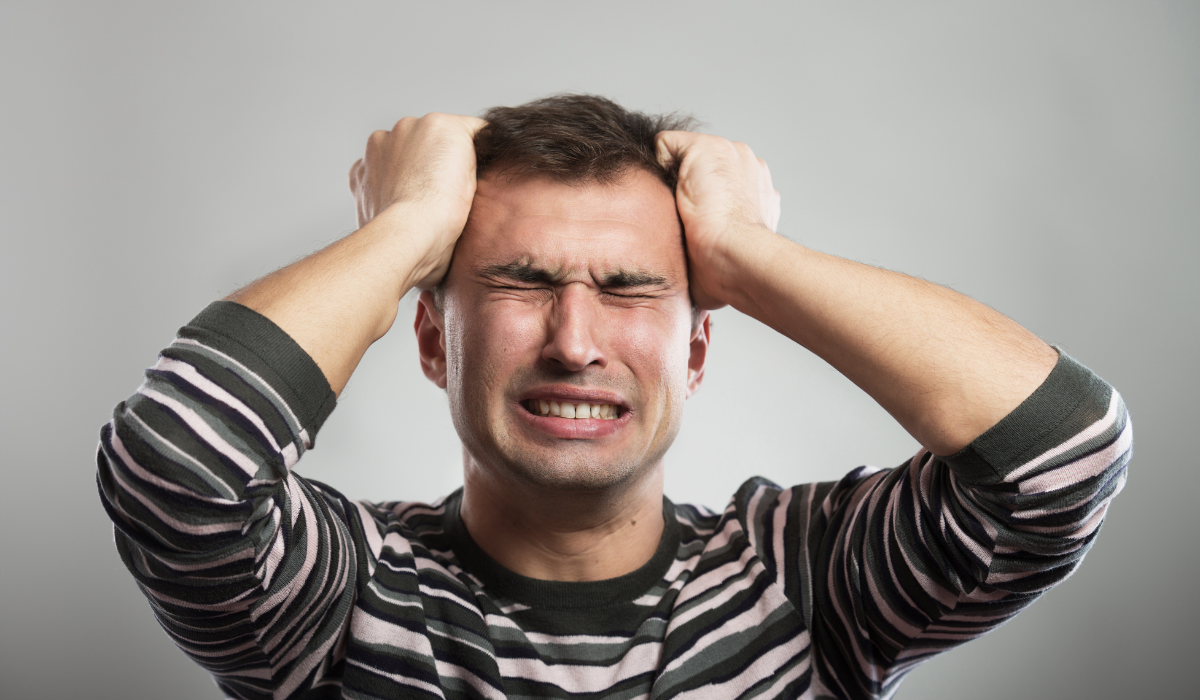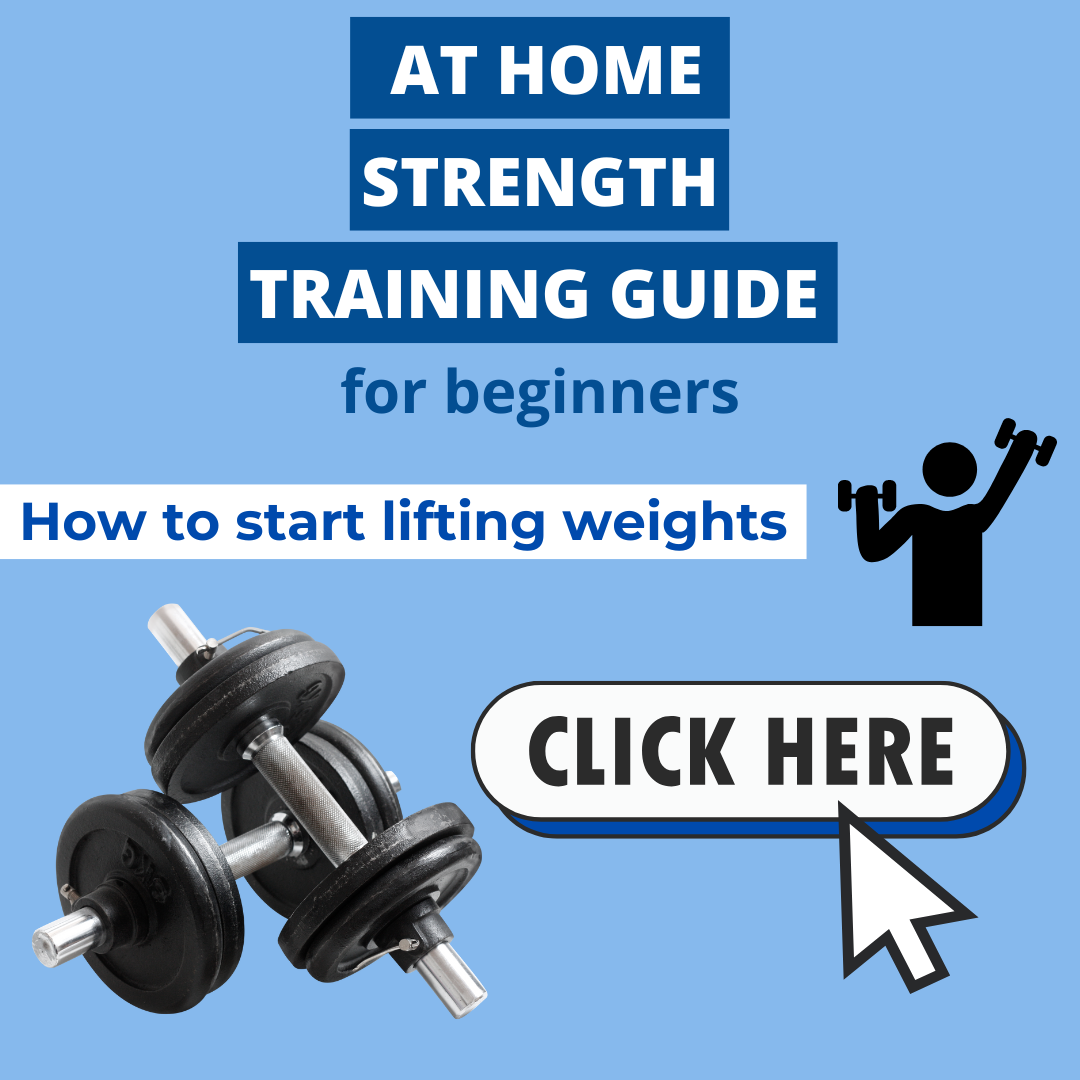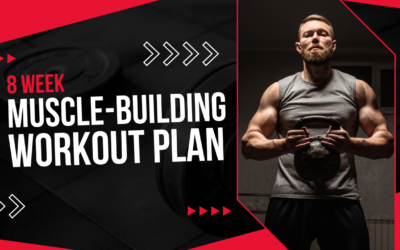13 Reasons Why You’re Not Losing Weight Counting Macros

“Why am I not losing weight counting macros?”
You feel like it’s all just been a giant waste of your time.
What’s the point in putting so much effort into hitting your daily targets for protein, carbs, and fats?
The literal definition of insanity is continuing to do the same things over and over again but expecting different results.
And you’re almost at that point.
It feels absurd to keep trying something that CLEARLY just isn’t working.
Trust me, I know how frustrating it is to give all this effort and just not see any results.
Before you go giving into thoughts like “No matter how hard I exercise and diet I can’t lose weight,” understand this…
Your metabolism doesn’t need fixing with some pointless “reset” or anything like that.
And no, the reason you’re not losing weight counting macros isn’t because your body’s in starvation mode.
Actually, there are quite a few reasons that could explain why you’re not losing weight counting macros.
We’ll be talking about X of them in this post.
And the good news is with a few small tweaks you can start seeing the weight loss results you want.
Why am I not losing weight with my macros?
Here are the 13 reasons why you’re not losing weight counting macros, plus what you should do instead to get the scale trending in the right direction.
1. You’re trying to eyeball how much you’re eating
See if you can measure out a serving size of rice in grams without using a food scale.
I can tell you right now….
You’d be WAAAAAAY off, just like all of us would be.
As humans, we have a tendency to underestimate portion sizes and how much we’re truly eating.
You think you’re eating “X” amount when, in reality, it’s significantly more.
Back when I first started tracking macros I remember thinking to myself, “Ohhhhh so THIS is what one serving of rice actually looks like.”
I had to have been eating at least close to double that amount.
My advice:
If you’re not losing weight counting macros, invest in a food scale and start weighing your food out in GRAMS.
That’s the most accurate way to track and ensure you hit your macro targets.
2. You’re not counting the extra bites, licks, nibbles, and snacks
Tracking 2,000 calories and actually consuming 2,000 calories are two different things.
If you’re not losing weight counting macros, make sure you account for literally everything that goes in your mouth (food-wise, for those of you whose minds live in the gutter 😂)
Every little bite, nibble, lick, snack, handful, or extra spoonful, no matter how insignificant you think it is.
Do you lick the leftover peanut butter on the spoon after already giving yourself a serving?
Those calories count.
Grab a handful of M&M’s from your coworker’s candy jar every time you walk by their desk?
Extra calories.
What about when you’re sprinkling cheese on top of your salad?
You reach in for an extra handful after you’re done and eat it…
Yep, you guessed it.
You need to account for these calories too.
Some extra calories here and there might not seem like a big deal in the moment but spread out over the course of an entire day it can add up to hundreds of extra calories and prevent you from being in a calorie deficit
3. You go overboard on the weekends
Does Monday through Friday look like this? ⇨ 🥗🏋🏾♂️🏃🏾♀️
But then your weekends look like this? ⇨ 🍕🍾🎉
If so, you have a pretty clear reason why you’re not losing weight counting macros.
Just think about it…
Your whole weekend is one giant “cheat meal” where you don’t track anything and yet somehow you expect to see results when you’re not accounting for nearly 30% of your entire week?
Overdoing it on the weekends can EASILY erase all the hard-earned progress you made during the week.
I have two solutions for you:
- Don’t restrict yourself so much during the week that you feel like you have to “make up” for it on the weekends.
- Give calorie cycling a try for some more flexibility with your nutrition on the weekends.
4. You set your macros too low
When you originally set your macros, did you think to yourself…
“I’ll lose weight faster if I set them lower”?
It sounds good in theory–slashing your calories super low so you can lose weight quickly
But going for super quick means you sacrifice sustainability.
And when you can’t sustain something, guess what?
The results just don’t last.
Setting your macros too low opens the door for you to get stuck in a vicious cycle:
- Stick with your diet for a little bit and lose some weight
- Hunger gets the best of you so you binge and overeat
- Gain all the weight you lost back, which puts you right back where you started
The goal of being in a calorie deficit shouldn’t be to eat as little as possible.
Your goal should be to eat as much as possible while losing weight in a sustainable way.
Instead of setting your macros so low, just make them so you’re eating in a moderate calorie deficit (about 300-500 calories below your maintenance).
5. You’re not planning ahead
Does this ever happen to you…
You get to the end of the day, check to see where you stand with your macros, and it’s like, “Damn, I’m hungry AF but unless I’m eating air for dessert I don’t have any calories left.”
Since you don’t want to go to bed hungry, you don’t end up going over on your calories for the day.
To prevent situations like this where you’re counting macros and not losing weight in the future, plan your next day out the night prior.
So let’s say it’s Tuesday night.
Open up MyFitnessPal or whatever calorie-counting app you use and pre-log what you’re thinking about eating on Wednesday.
Put in your breakfast (try to make it high in protein), lunch, your snacks, and that homemade recipe you’re already looking forward to for dinner.
You’ll avoid the “I wish I’d planned my day better with my macros” feeling.
6. You’re not as consistent as you need to be
If you’re not losing weight counting macros, let me ask you something…
Does your consistency match your expectations?
If you’re only giving a C or D effort but think you should be seeing A+ results, there’s a disconnect there.
So you can either:
A.) Lower your expectations, or…
B.) Start being more consistent so you can achieve the results you want. . (link back to post).
7. You don’t account for liquid calories
Alcohol, sports drinks, your go-to coffee order from Starbucks…
They all contain calories.
You can fit these into your diet, just don’t make the mistake of pretending that calories from beverages just evaporate into thin air when you consume them.
8. You’re eating back exercise calories
Apps like MyFitnessPal or your smartwatch have a spot where you can log exercise calories.
This is what I’m talking about:

Don’t do that.
If you’re curious about why, you can read this article where I go into detail on it.
9. You don’t prioritize food quality
If I said this a thousand times it’d still be worth repeating…
In order to lose weight, you MUST be in a calorie deficit.
I guess that technically means you could eat Pop-Tarts and Twizzlers all day as long as the amount you eat keeps you in a deficit.
But you want to have your calorie deficit work for you, not against you.
A Pop-Tart/Twizzler combo diet would make maintaining a calorie deficit pretty difficult.
Why am I talking about Pop-Tarts and Twizzlers?
It’s to make this point…
Eating a bunch of calorie-dense foods (like Pop-Tarts and Twizzlers) as opposed to nutrient-dense, high-volume whole foods (which means you get to eat a lot on fewer calories) might be one of the reasons you’re not losing weight counting macros.
Yes, tracking macros is all about flexibility and establishing that balance between making healthier food choices while still enjoying your favorites in moderation.
The key word here though is “moderation” because the reality is if you want to lose weight then the majority of your calories shouldn’t be coming from sweets, treats, and those snack-type foods.
Get 20% of your calories from foods like those and then 80% of your calories from nutrient-dense whole foods like chicken breast, lean ground beef, egg whites, potatoes, fruits, veggies, etc.
10. You need to adjust your macro ratios
Let’s say when you first calculated your macro targets, you decided on a diet that’s higher in fats.
But now you’re finding it difficult to maintain your deficit.
Well, the good news is you don’t always have to stick with the macronutrient ratios you picked originally.
You can switch things up and find out what’s ideal for you in the present day.
The one macro I would recommend not really tinkering with is protein.
Protein is extremely satiating (more so than carbs and fats) and it’s key to preserving muscle while you’re in a calorie deficit.
Muscle = a higher metabolism and more fat loss.
Ideally, you want to aim for 0.7g-1g per pound of your goal body weight every single day.
11. You’re eating out too much
Before the mob comes at me with pitchforks and torches, just hear me out on this one.
I know what you’re probably thinking…
”Are you telling me I can’t eat out?! Isn’t the whole point of tracking macros to help people lose weight without feeling restricted?”
You’re 110% right, macro-counting is a way to eat healthier without sacrificing all the foods you love.
I even dedicated this entire post to eating out for weight loss.
So I’m not saying a burger or two from your favorite fast food joint is the reason you’re not losing weight counting macros.
What I am saying is you might be eating out TOO MUCH.
The truth is weight loss is a lot easier when you make the majority of your meals at home.
Why?
It allows you to be more precise with your tracking your macros.
You can weigh/measure everything you got from the grocery store so you know exactly how much you’re eating.
Eating out can involve a lot more estimating, which means there’s greater room for error.
Try to limit yourself to 2-3 eat-outs per week, at the most.
12. Thinking you have to be perfect all the time
Does the following situation describe what you would typically do?
Let’s say you can’t find the EXACT match for a certain food in MyFitnessPal.
Instead of giving it your best guess and going on about your day, you throw your hands in the air, swear under your breath that tracking macros is useless and you don’t know why you do it, and then you just don’t end up tracking anything
Which puts you over on your calories…
And all because things didn’t line up 100% perfect the way you wanted them to.
Or maybe you had an hour-long strength training session planned for the day but you’re running short on time.
Rather than get a quick 30-minute workout in the time you do have, you just skip the gym.
In a nutshell: If you can’t be perfect, you just bury your head in the sand and do nothing at all.
I have some news for you…
Things aren’t always going to be perfect or go 100% according to plan.
Look, nothing is ever going to be perfect. Situations like the ones I laid out above will arise.
How you handle those will go a long way toward determining how successful you are with weight loss.
Instead of viewing things from an all-or-nothing mindset, adopt the mindset that “some effort is better than no effort at all.” and move on with your day.
Results don’t come from what you do all the time.
They come from what you do MOST of the time.
13. The scale is your only measure of progress
On a daily basis, your weight can fluctuate (i.e. it’s not linear).
Even if you’re doing everything right, you won’t lose weight every single day.
The number you see whenever you weigh yourself will move up, down, and just be all over the place.
That’s why I’m a big believer in weighing yourself every single day (as opposed to weekly or monthly).
It gives you the most complete picture of how your weight loss is truly trending.
Think about it like this…
Which one is more accurate?
Your teacher taking class attendance weekly or monthly and using that to determine your participation grade?
Or, taking attendance every single day?
Nonetheless, the scale shouldn’t be the sole tool you use to assess your progress.
Another way to track your progress is by taking measurements.
Let’s say you run into a situation where you’re losing inches but not weight (which is common for those who are just starting out lifting weights).
So the scale isn’t moving but when you look in the mirror and through progress pictures you have more muscle definition, you appear leaner, and your clothes are fitting better.
Does that mean you’re not making progress?
You absolutely are.
Inch loss = fat loss you improved your body composition.
Last point…
You want to know what else the scale doesn’t measure?
- Having more energy
- Improved sleep
- Better mood
- Increased workout performance
- Feeling stronger and more confident
…Just to name a few.
That’s my long-winded way of saying…
Don’t think that progress ONLY means weight loss.
Counting macros and not losing weight FAQs
What happens if I’m going over on fat macros but not calories?
Total calories matter above everything else.
Macros are secondary.
If you’re going over on your fats but staying within your total calories overall, you’ll still lose weight.
Just be careful because fats contain more calories per gram of food (9) than both carbs and protein (4).
Can you still lose weight if you don’t hit your macros?
Yes, you can because total calories drive weight loss (same thing as above).
However, keep in mind that macros (mainly just your protein intake) determine body composition (i.e. how lean or defined you are and how much muscle you have).
How long does it take to see weight loss counting macros?
I’d say you should start seeing some weight loss within about 1-3 weeks of CONSISTENTLY counting macros and ACTUALLY being in a calorie deficit (not just thinking you are).
If you’ve been tracking macros over that time frame and you’re still not seeing results (whether that be weight loss and/or inch loss), you’re either:
A.) Not being as consistent as you think you are, or…
B.) There’s something you aren’t doing right (Read back through this article to see if you can determine what could be tripping you up)
Why am I gaining weight counting macros?
You’re not losing weight counting macros but gaining?!
How can that be?
Well, here are some common macro-counting mistakes that might explain the reason why:
- Not using a food scale to weigh out your food in grams
- Forgetting to track all the extra bites, nibbles, handfuls, and snacks you have throughout the day
- Not accounting for cooking oils or liquid calories
- Weighing out your food cooked as opposed to raw
- Pretending calories don’t count on the weekend
Why am I not losing weight on 1,200 calories a day?
- Most toddlers wouldn’t even get by on 1,200 calories a day…
- If, as a full-grown adult, you truly were only eating 1,200 a day, you’d undoubtedly see weight loss.
The reason you’re not losing weight despite only eating 1,200 calories is that you’re consuming more than the 1,200 calories you think you are.

What's up?
I’m Chad, I’m happy you’re here! I’m a certified personal trainer and my goal is to help you form practical, sustainable habits that lead to lifelong fitness results. If you want to lose fat, build muscle, and live a healthier, happier life then you’re right where you need to be. 💪🏾
Free resources
⬇⬇⬇







0 Comments